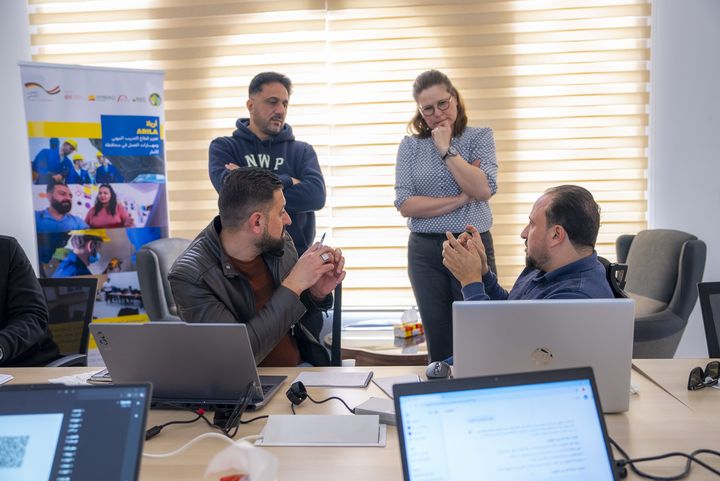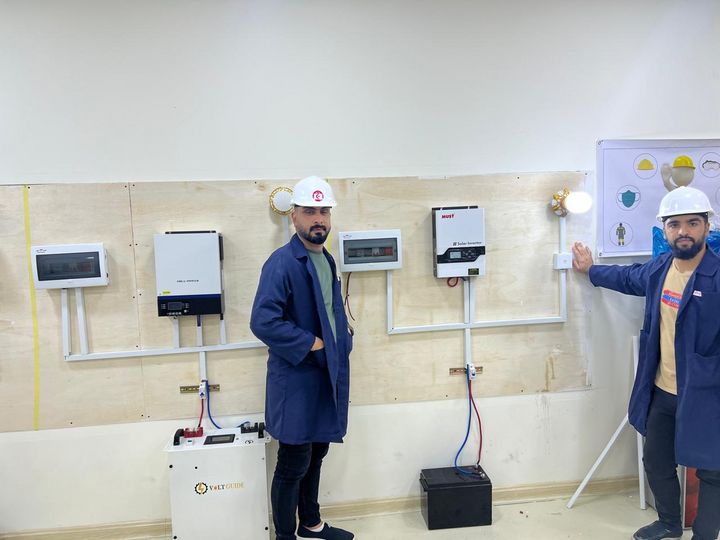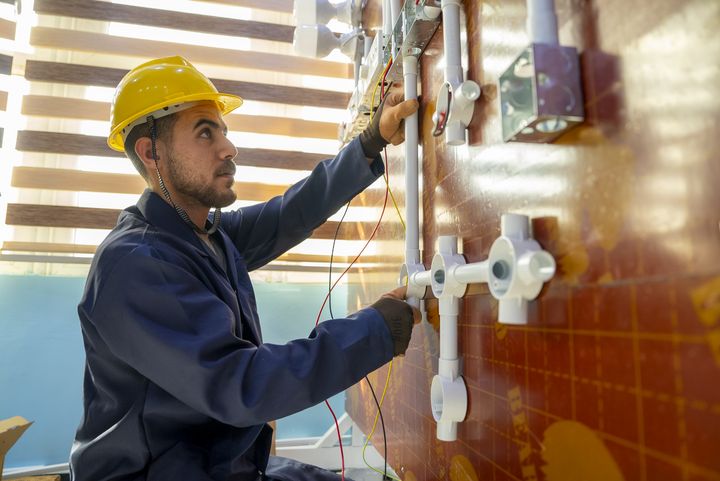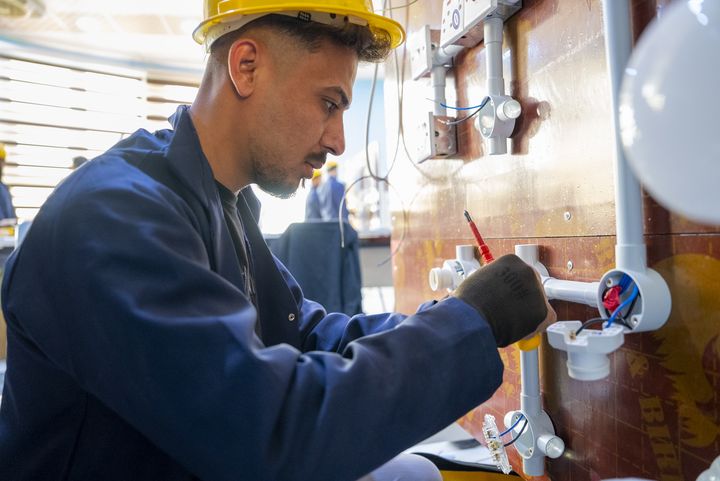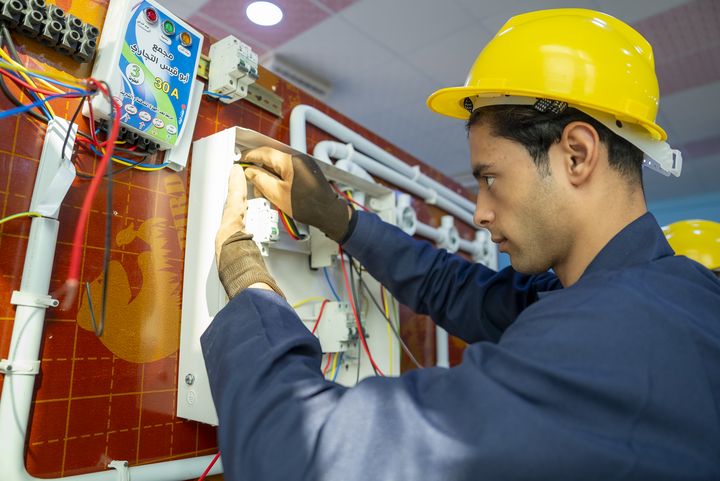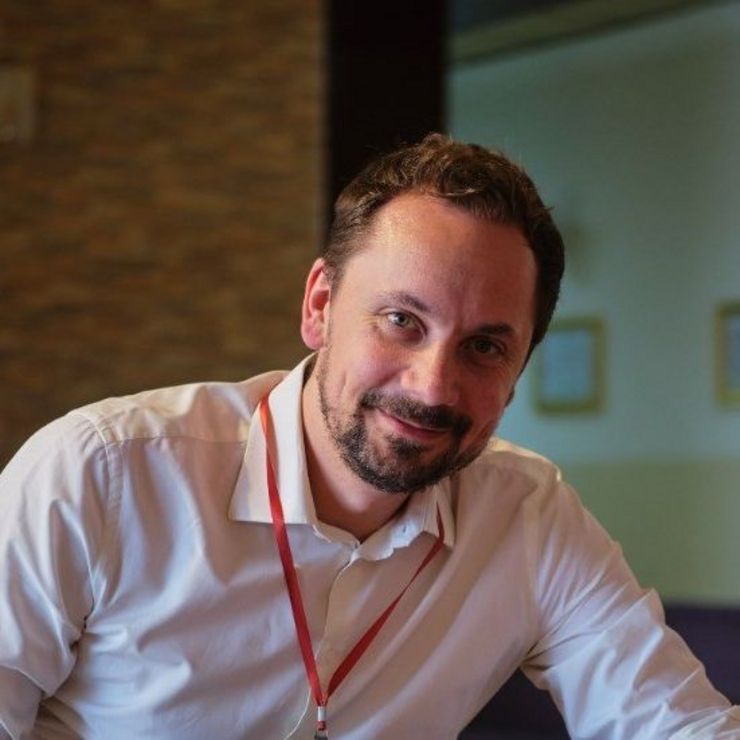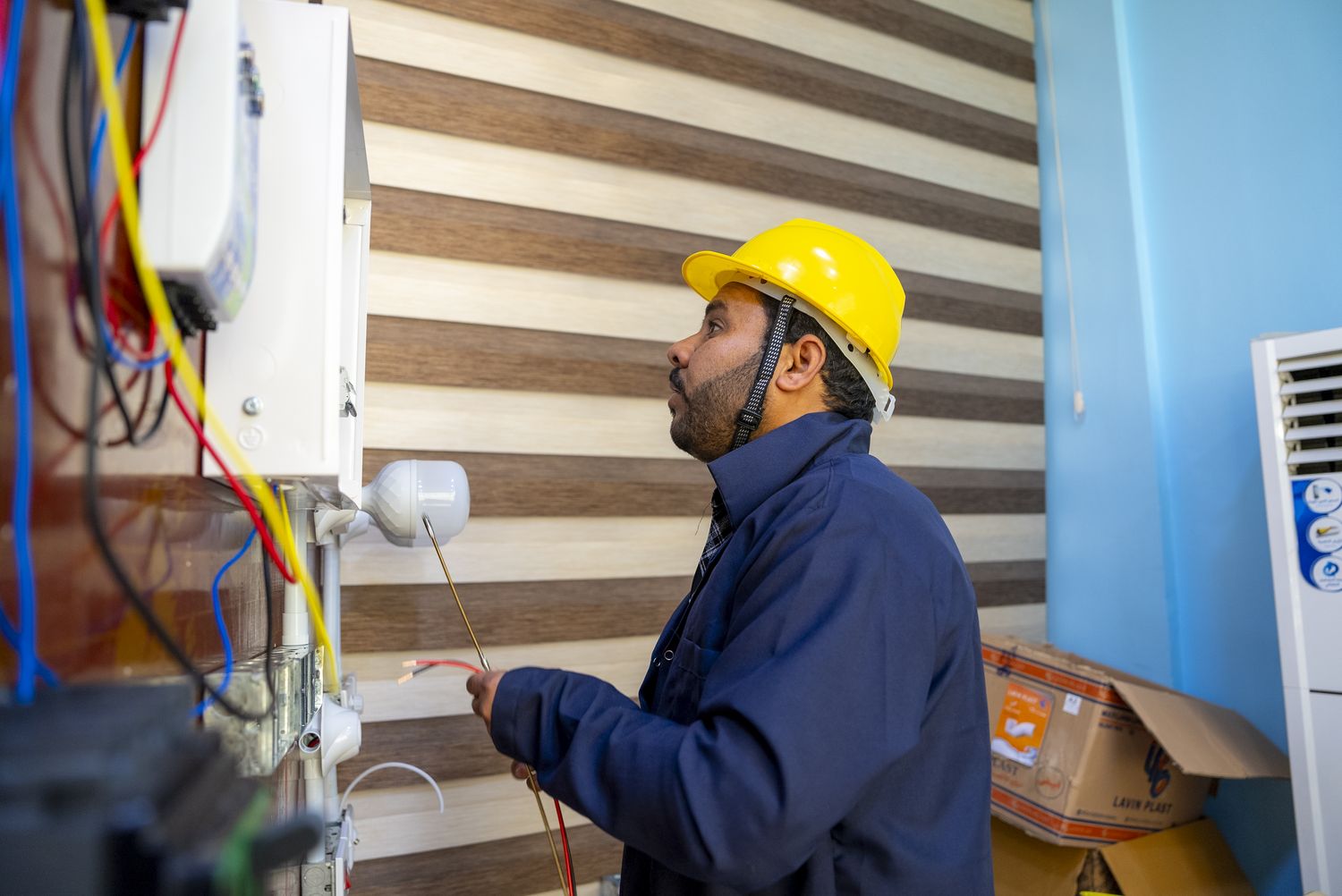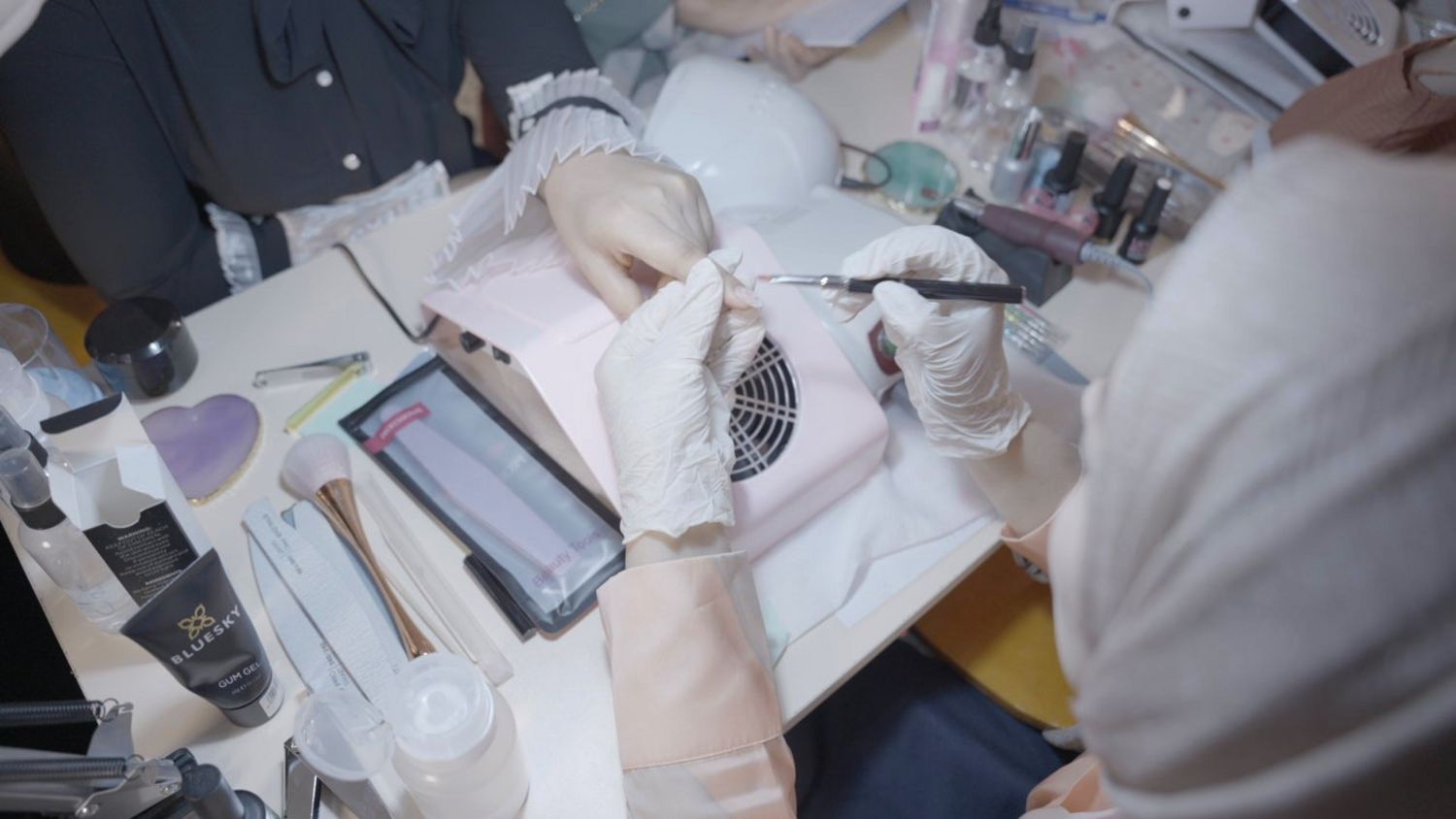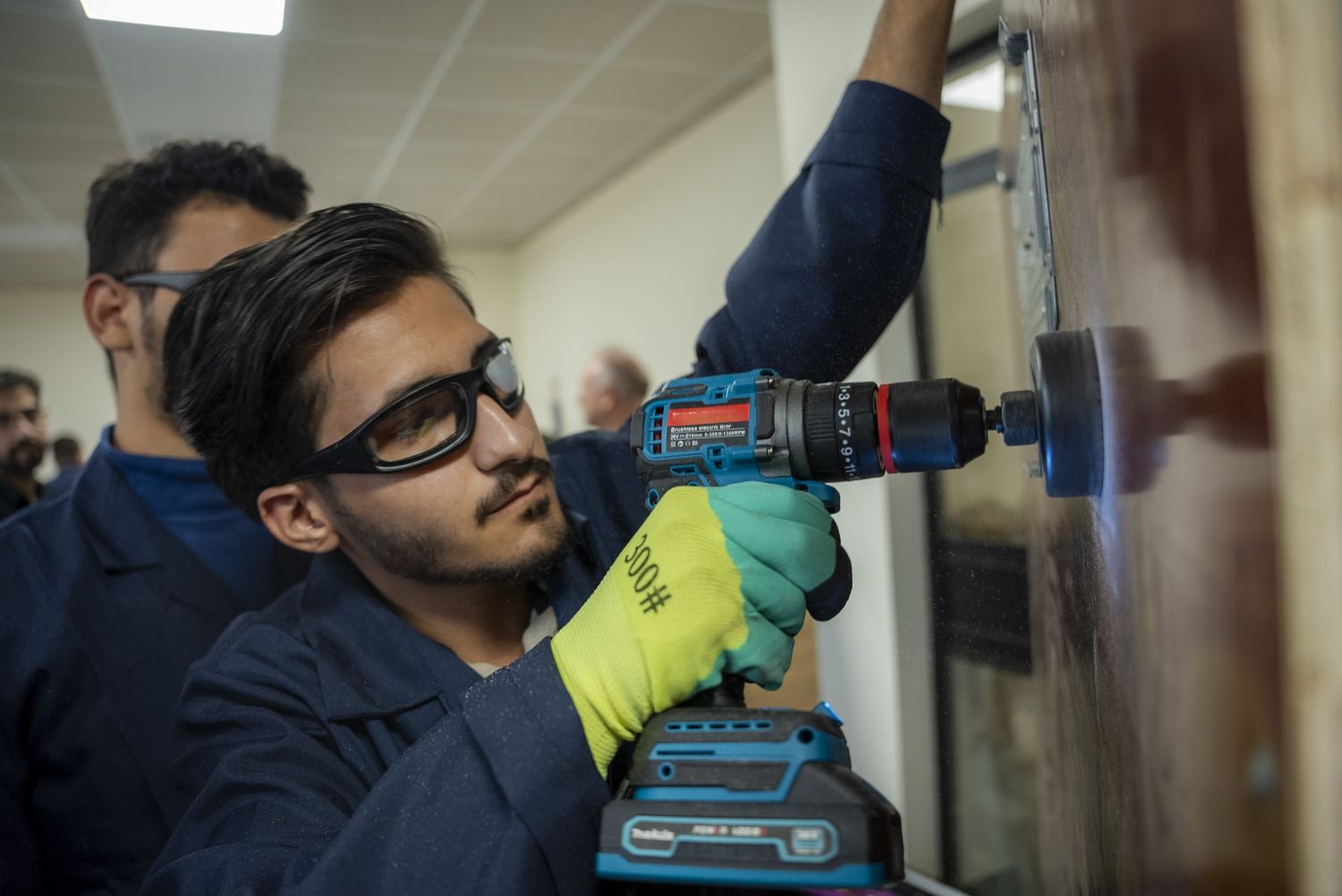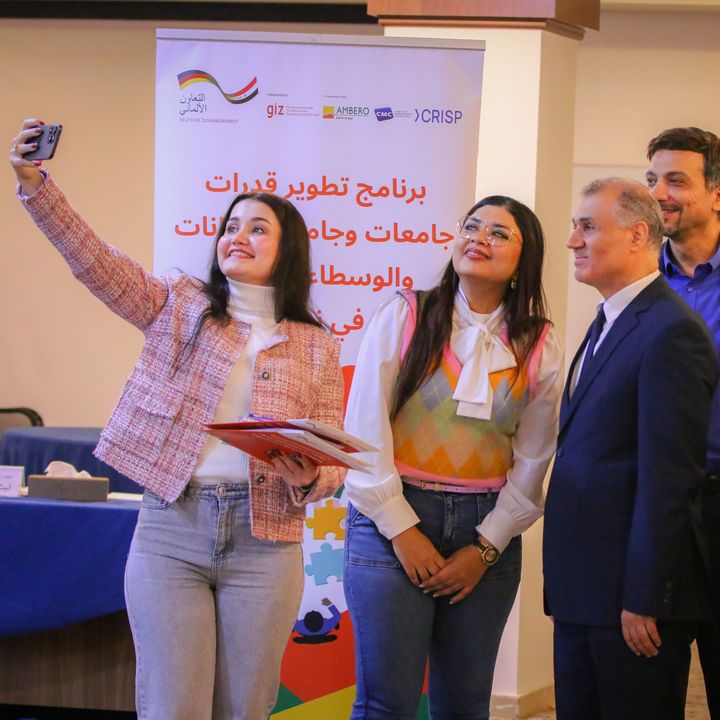Iraq is still dealing with the long-term effects of ongoing conflicts and high unemployment, especially among the youth. The ARILA Project (Assisting Reconstruction and Improving Living Conditions in Anbar) aims to counter these challenges by providing vocational education that opens new avenues for young people. Marius Jakl told us about the project's execution, the obstacles faced, and the hopes for the future.
New Perspectives in Iraq: Promoting Vocational Education and Training with the ARILA Project
| Insights
How do you manage to offer a perspective to young people in a region marked by conflict? Marius Jakl, project manager for the ARILA project shares some insights and talks about challenges, successes and personal experiences.
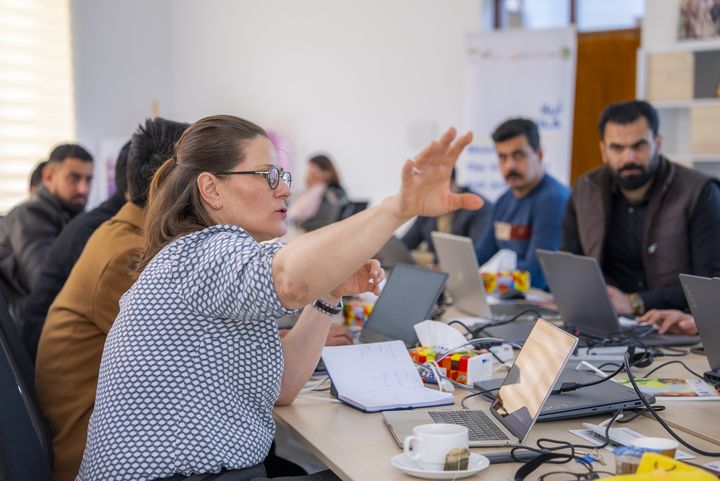
Could you start by explaining what the ARILA project is and what role it plays in the Anbar region of Iraq?
Certainly. The ARILA Project stands for "Assisting Reconstruction and Improving Living Conditions in Anbar." It is a project designed and implemented by the Deutsche Gesellschaft für Internationale Zusammenarbeit (GIZ), running from November 2021 until June 2025 with. The project focuses on the Anbar province, specifically the cities of Heet, Fallujah, and Ramadi.
Our main focus is on vocational education outside the agricultural sector. In collaboration with the Bavarian Economic Education Center (bbw), we are responsible for implementing Output 2 of the project, which targets sectors such as construction, energy, and IT. Our goal is to equip 1,320 young job seekers aged 18-45, particularly women and returning displaced persons, with practical skills through short-term training programs, preparing them for the job market and connecting them with potential employers.
In this way, we can offer young people a perspective and at the same time contribute to the reconstruction of the region.
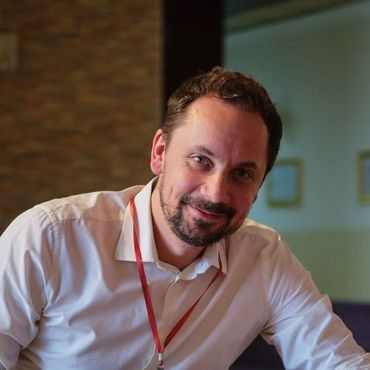
How is the project being implemented on the ground, and who are your local partners?
We have developed or adapted nine vocational profiles and five soft skills modules, that are taught through 25-day short-term training programs. These include fields like digital marketing, typography design, solar installation, plumbing, vehicle maintenance, and office administration. So far, we have reached approximately 590 people through two pilot phases.
Our local partners include the Deputy Governor of Anbar, the Labor Directorate, and the Vocational Training Centre in Ramadi. Together, we work to strengthen the management and teaching capacities of these institutions. A key component is job matching: we organise job fairs where our graduates meet potential employers, facilitating a direct transition from training to employment.
Project Structure
- Main partner: Dorsch Impact and Bildungswerk der Bayerischen Wirtschaft (bbw) – commissioned by GIZ
- Local partners: Deputy Governor, Labour Directorate, Vocational Training Centre of Ramadi
- Components: Development of nine vocational profiles for short-term training, including five modules in soft skills
- Job matching between graduates and employers
- Capacity building with local partners through management training
- Equipping the classrooms (workshops) with important equipment and materials for the implementation of the pilot courses and also in the longer term
- Special measures: Engaging disadvantaged groups such as women, displaced persons and people with disabilities
- Establishment of the Anbar Skills Development Advisory Group for the continuous adaptation of curricula to the labour market
Every job created and every new opportunity for a young person makes me feel that we are making a real difference.
What motivates you?
The work is undoubtedly challenging and often intense. However, the positive impacts we see on the ground are highly motivating. Every job created and every new opportunity for a young person makes me feel that we are making a real difference. I also value the cultural experiences and the opportunity to work closely with the local community.
Of course, there are stressful periods, and the work can be very demanding. But the positive outcomes we achieve locally give me the energy to keep going.
We hope that the structures and partnerships we have established will remain and continue to grow.
More Images
